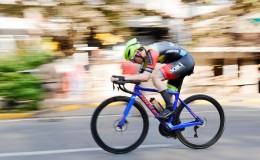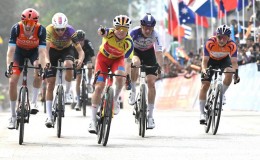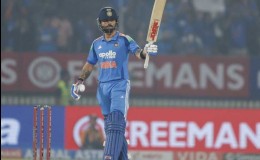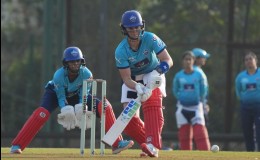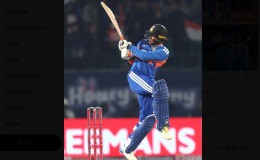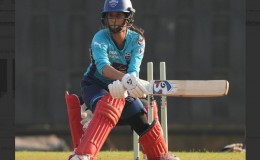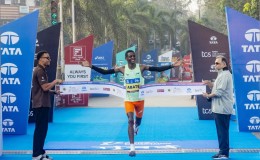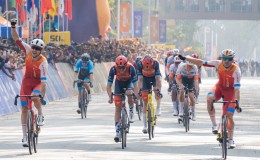 The International Olympic Committee (IOC)’s Coordination Commission for the Rio 2016 Olympic Games ended its fourth visit to the Brazilian city today. It noted that there had been solid progress since its last visit in June 2012 including on the media villages, the venue masterplan, and the recruitment of staff by the Organising Committee. However, time remains of the essence. In the next three and a half years, both the Olympic Parks – in Deodoro and Barra – and many supporting infrastructures will need to be delivered. It is a task of great magnitude that lies ahead for the organisers.
The International Olympic Committee (IOC)’s Coordination Commission for the Rio 2016 Olympic Games ended its fourth visit to the Brazilian city today. It noted that there had been solid progress since its last visit in June 2012 including on the media villages, the venue masterplan, and the recruitment of staff by the Organising Committee. However, time remains of the essence. In the next three and a half years, both the Olympic Parks – in Deodoro and Barra – and many supporting infrastructures will need to be delivered. It is a task of great magnitude that lies ahead for the organisers.
Chaired by IOC Executive Board member Nawal El Moutawakel, the Commission spent three days examining preparations for the Rio project and receiving updates from the organisers and their partners on their plans. The Commission members also visited a number of Games-related projects including the Maracaña Stadium, Rio 2016’s new headquarters, Deodoro, and the Rio port area. They were particularly pleased to see that the local Organising Committee had taken on board many lessons from the London Games (both on site last summer and during the London Debrief in Rio last November) and has been busy adapting them to its own circumstances.
The continued strong support from the government was highlighted by the Commission following the start of regular meetings between the local Organising Committee and all levels of government, which were led by Brazilian President Dilma Rousseff. Aldo Rebelo, the Brazilian Minister of Sport; Sergio Cabral, the Governor of Rio de Janeiro; and Eduardo Paes, the Mayor of Rio de Janeiro, were also present during the meetings of the Commission.
The evolution of the structure of the Rio 2016 Organising Committee, with the arrival of new CEO Sidney Levy and a number of personnel with previous Olympic experience, have also helped to move the Rio project forward in recent months. The Commission noted that this recruitment work needs to continue, as the project moves towards final delivery, which will require previous Games experience.
“We've seen solid progress this week,” said Commission Chair El Moutawakel. “Building work is ongoing and the Organising Committee continues to strengthen its capacity. However, many projects will have to be delivered simultaneously. We remain confident but we must all stay vigilant and continue to work hard, so that timelines are respected.”
The year ahead will be a critical one for Rio 2016, with work needed to begin at a number of sports venues in order to meet the deadlines for test events ahead of the Games. Such events are crucial in making sure that the Olympic Games run smoothly, as they allow athletes to get a feel for the field of play ahead of the Olympic Games, and for National Olympic Committees and International Federations to plan all their operations.
Rio 2016’s accommodation plans were presented during the meeting. The Commission recognised that a lot of work has been done but underlined that many hotel constructions were still to be confirmed in the next few months; the final accommodation plan is an essential building block for many Games operations.
Rio 2016 also presented its plans for engaging the whole country through different areas, such as education, culture, digital media, the brand, and spectator experience. The Commission was pleased to note that all the local stakeholders of Rio 2016 were being involved in the process.
The President of the Rio 2016 Organising Committee, Carlos Arthur Nuzman, commented: “We are making strong progress in our journey and we are on track to deliver great Games for Rio, Brazil and the world to enjoy. We have worked hard to increase integration across the project and the vital engagement and support of the three levels of government is stronger than ever. We are grateful for the expert advice and guidance received from the IOC Coordination Commission this week, and the Rio 2016 teams will continue to work relentlessly to deliver solutions for the outstanding issues and to respect the timelines involved in the project.”
In addition, the Commission received updates on preparations in areas such as athletes, venues, sports, International Federation services, National Olympic Committee services, transport, media services, work force, technology, marketing, and the Paralympic Games.
With the conclusion of London 2012 last year, the Commission will start to visit Rio twice a year from now on, as is the usual schedule for Coordination Commission visits to a Games host.

